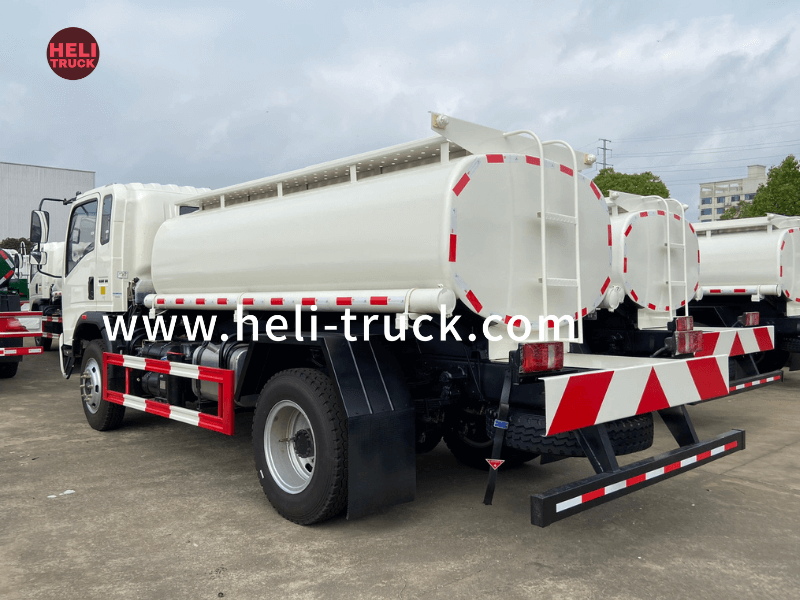The Ultimate Guide to Garbage Compactor Trucks for Residential Use

Introduction
Garbage compactor trucks have become an essential tool for managing waste in residential areas. These specialized vehicles are designed to efficiently collect and compact waste materials, making them ideal for neighborhoods, apartment complexes, and other residential settings. In this comprehensive guide, we will explore the features, benefits, and considerations of garbage compactor trucks for residential use.
History and Evolution of Garbage Compactor Trucks
Garbage compactor trucks, also known as refuse trucks or waste collection vehicles, have a long history dating back to the early 20th century. The first compactor trucks were simple open-bed vehicles used to transport waste from homes and businesses to disposal sites. Over time, advancements in technology and design led to the development of more sophisticated compactor trucks capable of compacting waste on-site.
The modern garbage compactor truck is a highly specialized vehicle equipped with a hydraulic compactor mechanism that compresses waste materials into a smaller, more manageable volume. These trucks come in various sizes and configurations to meet the specific needs of residential communities, ranging from small compactors for individual households to larger trucks for apartment complexes and gated communities.
Types of Garbage Compactor Trucks for Residential Use
There are several types of garbage compactor trucks designed for residential use, each offering unique features and benefits. The most common types include:
1. Rear Loader Compactor Trucks: Rear loader compactor trucks are equipped with a hydraulic compactor mechanism at the rear of the vehicle. These trucks are commonly used for curbside collection in residential neighborhoods, allowing waste collectors to empty bins into the compactor and compact the waste on-site.
2. Side Loader Compactor Trucks: Side loader compactor trucks feature a compactor mechanism on the side of the vehicle, making them ideal for narrow streets and tight spaces. These trucks are commonly used in urban areas and apartment complexes where traditional rear loaders may have difficulty accessing.
3. Front Loader Compactor Trucks: Front loader compactor trucks are equipped with a front-loading compactor mechanism that allows waste collectors to empty dumpsters and compact waste directly into the vehicle. These trucks are commonly used in commercial settings but can also be used in large residential communities with centralized waste collection points.
4. Mini Compactor Trucks: Mini compactor trucks are smaller, more compact vehicles designed for individual households and small residential communities. These trucks are ideal for areas with limited space and can easily navigate narrow streets and driveways.

made my day of Garbage Compactor Trucks for Residential Use
Garbage compactor trucks offer several benefits for residential communities, including:
1. Efficient Waste Collection: Garbage compactor trucks can collect and compact waste in a single trip, reducing the number of collections required and minimizing the environmental impact of transportation.
2. Space-Saving Design: By compacting waste materials, these trucks can carry larger volumes of waste in a smaller space, reducing the need for multiple trips to disposal sites.
3. Improved Hygiene and Safety: Compacted waste is less likely to spill or attract pests, improving hygiene and safety in residential areas.
4. Cost-Effective Waste Management: Garbage compactor trucks help reduce labor and fuel costs associated with waste collection, making them a cost-effective solution for residential communities.
Considerations When Choosing a Garbage Compactor Truck
When choosing a garbage compactor truck for residential use, there are several key considerations to keep in mind:
1. Size and Capacity: Consider the volume of waste generated in your residential community and choose a compactor truck with the appropriate size and capacity to meet your needs.
2. Accessibility: Ensure that the truck can easily access collection points and navigate narrow streets or tight spaces within the residential area.
3. Compaction Mechanism: Evaluate the efficiency and reliability of the compaction mechanism to ensure that waste materials are properly compacted and transported.
4. Maintenance and Service: Choose a reputable manufacturer that offers reliable maintenance and service support to keep your compactor truck in optimal condition.
5. Environmental Impact: Consider the environmental impact of the compactor truck, including fuel efficiency, emissions, and recycling capabilities, to minimize the carbon footprint of waste collection.
Conclusion
Garbage compactor trucks are a versatile and efficient solution for managing waste in residential communities. By choosing the right type of compactor truck and considering key factors such as size, capacity, and maintenance, residential areas can streamline waste collection processes, improve hygiene and safety, and reduce environmental impact. With the evolution of technology and design, garbage compactor trucks continue to play a vital role in sustainable waste management practices for residential use.
